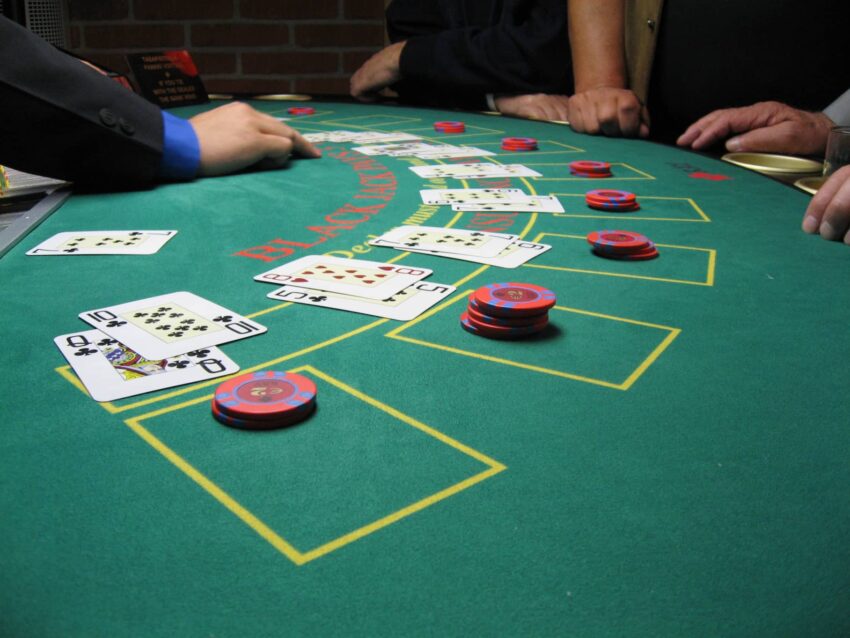Luck is a concept deeply intertwined with the allure of casino games. Many players believe that success in games like blackjack, roulette, and poker is primarily determined by chance. However, beneath the surface lies a world governed by mathematical principles and strategic thinking. In this article, we explore the mathematics behind winning strategies in popular casino games and challenge the traditional notion of luck.
Probability and Expected Value
At the heart of every casino game lies probability theory, which provides a framework for understanding the likelihood of different outcomes. By analyzing the probabilities of various events, players can make informed decisions that maximize their chances of success. Central to this analysis is the concept of expected value, which represents the average outcome of a given action over the long term. Calculating the expected value allows players to assess the potential risks and rewards associated with different bets or strategies.
Winning Strategies in Casino Games
In games like blackjack, where players compete against the house, understanding basic strategy and card counting techniques can tilt the odds in their favor. Basic strategy involves making optimal decisions based on the player’s hand and the dealer’s upcard, while card counting allows players to track the composition of the remaining deck and adjust their bets accordingly. By exploiting the house edge and implementing optimal betting strategies, skilled players can gain a mathematical advantage over the casino.
Similarly, in roulette, players can employ various betting systems in an attempt to overcome the inherent randomness of the game. From the Martingale system to the Fibonacci sequence, each betting system is based on a mathematical progression designed to mitigate losses and maximize winnings. However, it’s important to recognize that no betting system can alter the fundamental odds of the game, and relying solely on such systems can lead to significant financial losses.
In poker, often considered the ultimate test of skill and strategy, players must navigate a complex landscape of probabilities, psychology, and game theory. Successful poker players understand the importance of hand selection, position, and reading their opponents’ tendencies. By blending mathematical analysis with strategic decision-making, skilled players can consistently outperform their opponents and achieve long-term profitability.
Discover exclusive deals and bonuses for casino games at https://bet-bukmacher.pl/vulcan-vegas-niezalezna-recenzja/ and level up your gaming adventure today!
The Role of Variance and Bankroll Management
While mathematical strategies can provide a theoretical edge in casino games, it’s essential to acknowledge the role of variance in short-term outcomes. Variance refers to the inherent randomness and unpredictability of game results, which can lead to temporary winning or losing streaks. To weather the ups and downs of variance, players must practice disciplined bankroll management, allocating their funds in a way that minimizes the risk of ruin while maximizing their long-term earning potential.
Case Studies and Real-world Examples
Throughout history, there have been numerous examples of individuals who have successfully applied mathematical principles to gain an edge in casino games. From legendary blackjack players like Edward Thorp to modern-day poker pros like Phil Ivey, these individuals have demonstrated the power of mathematics in overcoming the odds and achieving extraordinary success. However, for every success story, there are countless cautionary tales of players who have fallen victim to the pitfalls of gambling addiction and irresponsible behavior.
Ethical Considerations and Responsible Gaming
While mathematical strategies can provide a legitimate advantage in casino games, it’s crucial to approach gambling with a sense of responsibility and ethical awareness. Casinos have a vested interest in maximizing their profits, and players should be mindful of the potential risks associated with excessive gambling. Promoting responsible gaming practices, such as setting limits on time and money spent, is essential to ensuring that gambling remains an enjoyable and sustainable form of entertainment for all.
Conclusion
The mathematics behind winning strategies in casino games offers a fascinating glimpse into the intersection of skill, strategy, and probability. By understanding the underlying principles of probability theory and game theory, players can make more informed decisions that maximize their chances of success. However, it’s important to approach gambling with caution and responsibility, recognizing that while luck may play a role in short-term outcomes, it’s ultimately skill and strategy that prevail in the long run.



